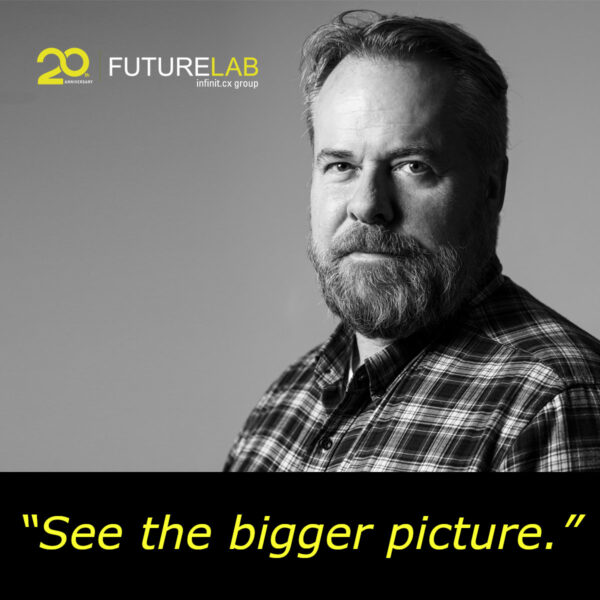by: danah boyd
This is an abstract of a paper that i would like to eventually write (although i don't know for where). In the meantime, i thought i'd throw it up here for critique.
In 2002, Clay Shirky (re)claimed the term "social software" to encompass "all uses of software that supported interacting groups, even if the interaction was offline, e.g. Meetup, nTag, etc." (Allen). His choice was intentional, because he felt older terms such as "groupware" were either polluted or a bad fit to address certain new technologies. Shirky crafted the term while organizing an event – the "Social Software Summit" – intended to gather like minds to talk about this kind of technology.
Although Shirky's definition can encompass a wide array of technologies, those invited to the Summit were invested in the development of new genres of social technologies. In many ways, the term took on the scope of that community, referring only to the kinds of technologies emerging from the Summit attendees, their friends and their identified community.
The term proliferated within this community and spread on all fronts where this community regularly exercises its voice, most notably the blogosphere and various events, including the O'Reilly Emerging Technologies Conference (Etcon). These gatherings, most notably the social software track at Etcon serve to reinforce the notion that social software primarily refers to a particular set of new technologies, often through the exclusion of research on older technologies.
Although social software events include only limited technologies, people continue to define the term broadly. Shirky often uses the succinct "stuff worth spamming" (Shirky, 10/6/2004) while Tom Coates notes that "Social Software can be loosely defined as software which supports, extends, or derives added value from, human social behaviour – message-boards, musical taste-sharing, photo-sharing, instant messaging, mailing lists, social networking" (Coates, 1/5/05).
Given the emergence of blogging over the last few years and the large audiences of many involved in the community of social software, this term and its definitional efforts have spread widely, much to the dismay – if not outrage – of some. The primary argument is that social software is simply a hyped term used by the blogosphere in order to make a phenomenon out of something that always was; there are no technological advances in social software – it's just another term that encompasses "groupware," "computer-mediated communication," "social computing" and "sociable media." Embedded in this complaint is an argument that social software is simply a political move to separate the technologists from the researchers and the elevate one set of practices over another. Shirky's term is undoubtedly political in that it rejects other terms and, in doing so, implicitly rejects the researchers as irrelevant.
While the term social software may be contested, it is undeniable that this community has created a resurgence of interest in a particular set of sociable technologies inciting everyone from the media to entrepreneurs, venture capitalists to academics to pay attention. What is questionable, and often the source of dismissal from researchers, is whether or not the social software community has contributed any innovations or intellectual progress.
In this paper, I will explore the contributions of social software. I will argue that there have been notable technological advancements, but that their significance stems from the rapid iteration of development in ongoing tango with massive user participation. In other words, the advances of social software are neither cleanly social nor technological, but a product of both.
I will explicitly address three case studies central to the narrow scope of social software – Friendster, blogging and Flickr. I will discuss how tagging, audience management (such as ACLs) and articulated social networks are neither technological advances nor social features, but emerge as a product of collective action and network affects. While parts of these technologies have been built in research, the actual advances are impossible to construct in a laboratory due to the sociological effects necessary for maturation.
Social software represents a new generation of social technology development – a generation that is dependent on moving beyond the laboratory and into mass culture. Its manifestations are already staggering – ABC declared 2004 the Year of the Blog as blogging challenged everything from political discourse to identity production. Social networking services in the hundreds have motivated millions of people worldwide to construct and negotiate profiles and grapple directly with the social awkwardness of being more public than one thought. By allowing people to easily stumble upon the work of others, media sharing services have prompted new ways of organizing information and playing with the intention of producing media. These advancements complicate critical theoretical ideas about the nature of the public(s), the role of relationships in sharing, and the collective desire to organize information.
In this paper, I will explicate those advances and unpack their implications both for digital social life and for our shared knowledge project. I will also argue that technological research's unwillingness to account for the advances, contributions and challenges of social software have significantly limited their own advancements. While social software's advances must be acknowledged, I will also present some of the limitations of the current approach – namely its inability to fully understand the sociological implications of its advancements. Reflexive failures limit the potential of social software since so much of its significance comes from the interplay between the technology and the use. Herein lies a question of our responsibility as researchers – when should we simply study these emergent technologies and when she we directly involve ourselves with the iteration?
Allen, Christopher. 2004, October 13. "Tracing the Evolution of Social Software" _Life with Alacrity_.
Shirky, Clay. 2004, October 6. "Blog Explosion and Insider's Club: Brothers in cluelessness." _Many-to-Many_.
Coates, Tom. 2005, January 5. "An addendum to a definition of Social Software." _Plasticbag.org_.
Original Post: http://www.zephoria.org/thoughts/archives/2005/05/08/the_significance_of_social_software.html




